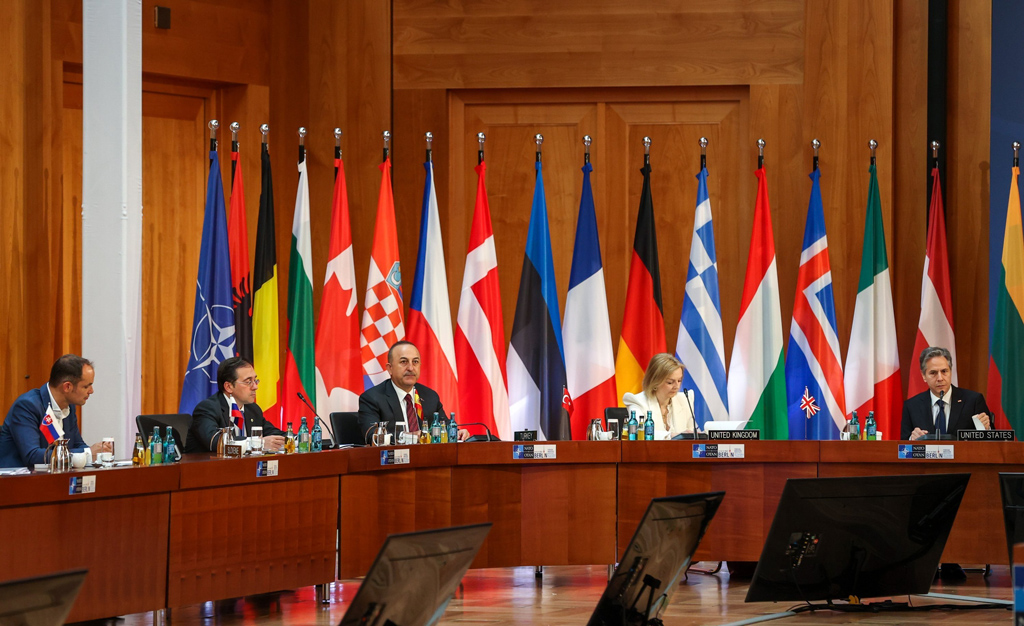Many analysts, especially from the Western world,
have been accusing Türkiye of following "revisionist policies" for the last decade. However, Türkiye places great emphasis on multilateral diplomatic activity. It is committed to the principles of the United Nations Charter and other norms and principles of international law, including the territorial integrity and sovereign equality of states, maintenance of international peace and protection of international security. Türkiye has increased its presence in international institutions and has no intention of exiting the international system but instead aims to make contributions to the system. In other words, Türkiye does not disrupt the system but follows a rule-based and constructive policy.
One can justify this position within three different contexts.
First of all, Türkiye has been trying to increase its role and effectiveness in global international institutions such as the U.N. and its affiliated organizations. Türkiye and President Recep Tayyip Erdoğan, who has been attending the U.N. General Assembly annual meetings for the last several years, attach great importance to the gatherings. One of the most well-known and competent diplomats of Türkiye, Ambassador Feridun Sinirlioğlu, has been serving at the U.N. headquarters since 2016. Within this context, Ankara has been trying to open a U.N. office in Istanbul, one of the largest and universal cities in the world.
U.N. stance on regional issues
On the one hand, Türkiye expects the U.N. to take action on specific global and regional issues such as the COVID-19 pandemic,
the Syrian crisis and the Libya issue. Türkiye calls on the U.N. to adopt a more active and effective position in the Israeli-Palestinian issue and the Syrian crisis. Ankara also insistently calls on the global powers to abide by the U.N. resolutions and the basic principles of international law such as the prohibition of the annexation of any territory by force from any country, whether it is Russia that annexes the Crimean Peninsula or Israel that annexes the Golan Heights. In addition, it calls on the global powers to not take unilateral action against other states, all of which undermine the very existence of the current international order.
On the other hand, Türkiye has been contributing to the U.N. position on certain regional issues. For instance, Türkiye hosted, facilitated and mediated the grain agreement under the auspices of the U.N. Thus, by allowing, facilitating and organizing the passage of millions of tons of grain through the Turkish Straits, it has made a great contribution to the resolution of the global food crisis. Similarly, it is one of the few countries that supports the U.N.-recognized government in Libya. While most global and regional countries such as the U.S., France and Russia have been supporting putschist Gen. Khalifa Haftar, Ankara has been supporting the Tripoli-based U.N.-recognized the Government of National Accord (GNA). Türkiye has been trying to protect the status quo and the territorial integrity of nation-states in the Middle East.
Second, Türkiye has been trying to maintain its close collaboration with Western multilateral institutions such as NATO, the Organisation for Economic Co-operation and Development (OECD), the Organization for Security and Co-operation in Europe (OSCE) and the Council of Europe. Ankara has upheld its responsibilities under these platforms and has never attempted to break off its relations with Western countries. On the contrary, it insistently accentuates its relations with the Western world.
Unlike many European countries, including those that have declared the brain death of NATO, Ankara still values its NATO membership. Türkiye still tries to improve its political, military and economic relations with the West on the basis of equal partnership.
Ties with ‘non-Western’ world
Third, also as a reaction to Western-driven otherization and alienation, Türkiye has been trying to improve its relations with non-Western international organizations, such as the Shanghai Cooperation Organization (SCO), and to initiate regional integration processes with different categories of countries, such as Turkic states. Türkiye has turned to other multilateral platforms mainly due to the deterioration of trust with Western allies. Therefore, blaming Türkiye for improving its relations with the non-Western multilateral platforms is misleading.
Another reason for Türkiye’s shift to regional platforms is the rising impact of regionalization on the global agenda. Not only Türkiye but also most states in the world try to initiate regional initiatives at different levels. Since a state cannot solve most of the problems that it faces alone, it has to cooperate with others to overcome the challenges. One of the processes that Türkiye prioritizes is improving cooperation among the Turkic states through
the Organization of Turkic States (OTS).
All in all, Türkiye has been trying to diversify its foreign relations. It is necessary to consider this diversification as a reaction to the policies of other states and an answer to the current necessities that have arisen in the international system.
[Daily Sabah, January 18 2023]







